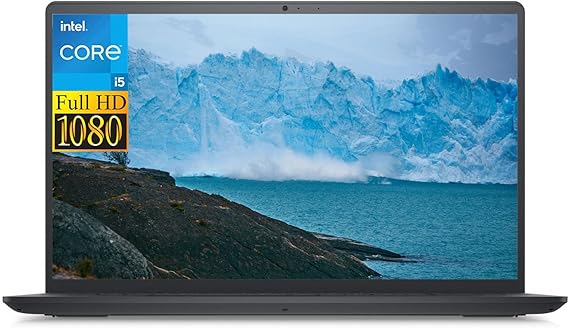In the dynamic world of laptop computing, two juggernauts, Dell and HP, stand as pillars of innovation and reliability. With their unwavering commitment to excellence and cutting-edge technology, these brands have captivated users worldwide. As we embark on this journey of comparison, we delve into the intricacies of Dell and HP laptops, exploring the distinctive features and strengths that define them. Join us as we uncover which brand emerges triumphant in this epic clash of tech titans.
Key Features Comparison
Product Selection
When it comes to product selection, both HP and Dell offer a wide range of laptops to cater to different user needs. HP's product line includes the Spectre, Envy, Pavilion, and Omen series, each designed for a specific target audience. The Spectre series is known for its high-end features and sleek design, suitable for professionals and creatives. The Omen series, on the other hand, is designed for gamers, with high-performance graphics and processing capabilities. HP also offers Chromebooks and 2-in-1 laptops, providing a versatile selection for users. Dell's product selection is equally diverse, featuring the XPS, Inspiron, Latitude, and Alienware series. The XPS series is Dell's flagship line, known for its powerful performance and premium build, competing directly with HP's Spectre series. The Alienware series is Dell's answer to gaming laptops, boasting high-end specs for demanding games. Dell also offers 2-in-1 laptops and Chromebooks, similar to HP. One advantage Dell has over HP is its Precision series, which is specifically designed for engineers and professionals requiring high-performance workstations. Both brands have their strengths and cater to a wide range of users, but Dell's Precision series gives it a slight edge in terms of product selection for professional users.
Affordability
HP and Dell are two prominent brands in the laptop market, each offering a range of models at varying price points. HP laptops are known for their affordability and value for money. They offer a wide range of options for both budget-conscious consumers and high-end users. For instance, their HP Pavilion series is a popular choice for those looking for a cost-effective laptop, while the HP Spectre series caters to the premium market with higher price tags. HP also incorporates the latest technologies in their laptops like 10th Gen Intel processors, SSDs for faster data access, and high-resolution displays. On the other hand, Dell laptops are recognized for their robust build quality and premium design, which is often reflected in their price. Dell's Inspiron series is a good choice for mid-range buyers, while the Dell XPS and Alienware series are priced at the higher end of the spectrum, targeting gamers and professionals who require high-performance machines. Dell laptops also feature the latest technologies such as 11th Gen Intel processors, SSDs, and high-resolution displays. However, compared to HP, Dell laptops are generally considered to be more expensive. But, it's important to note that the price of a laptop from either brand can vary greatly depending on the specific model and its configuration.
Reputation
HP and Dell are two of the most recognized brands in the laptop industry, each with its own reputation regarding quality, performance, and customer service. HP, known for its robust and reliable laptops, has consistently maintained a strong reputation for quality products. Their latest models, such as the HP Spectre x360, are praised for their sleek design, high performance, and durability. However, some users have reported issues with customer service, which could potentially affect the overall reputation of the brand. On the other hand, Dell has built a solid reputation for delivering high-performing laptops with excellent customer service. Their latest models, like the Dell XPS 13, are highly regarded for their superior build quality, impressive performance, and long battery life. Dell's reputation is further bolstered by its responsive and efficient customer service. However, some users have pointed out that Dell laptops can be on the pricier side compared to other brands, which could be a deterrent for some potential buyers. Overall, both HP and Dell have strong reputations in the laptop industry, each with their own strengths and weaknesses.
Battery Life
HP laptops have made significant strides in terms of battery life, especially with their latest models. For instance, the HP Spectre x360, one of HP's flagship models, boasts a battery life of up to 13 hours and 45 minutes. This is a considerable advantage for users who require a laptop for long hours of work or travel frequently. HP's fast-charge technology, which can recharge the battery to 50% in approximately 45 minutes, is another noteworthy feature. However, some users have reported that the battery life tends to decrease over time, which is a common issue among many laptop brands. On the other hand, Dell laptops, particularly the Dell XPS 13 and Dell Latitude series, are known for their impressive battery life. The Dell XPS 13, for example, offers up to 12 hours of battery life, while the Dell Latitude 9510 claims to provide up to 34 hours, which is one of the highest in the market. However, these figures can vary significantly depending on the specific usage patterns and power settings. Furthermore, Dell's ExpressCharge technology can recharge the battery up to 80% in an hour, which is faster than HP's fast-charge technology. But, Dell laptops tend to be more expensive, which might be a deterrent for some users. In comparison to other brands, both HP and Dell offer competitive battery life, but the final choice would depend on the specific needs and budget of the user.
Conclusion
In the showdown of Dell vs. HP laptops, both brands offer compelling options tailored to different preferences and priorities. Dell excels in reliability, performance, and professional-grade features, making it the ideal choice for professionals and business users who demand the utmost in productivity. HP, on the other hand, shines in design, innovation, and affordability, appealing to users who value style, versatility, and value for money. Ultimately, the choice between Dell and HP laptops depends on individual preferences, whether it's a preference for reliability and performance or design and affordability. Whichever path you choose, both Dell and HP continue to push the boundaries of laptop technology, driving innovation and inspiring users worldwide. So, whether you're team Dell or team HP, rest assured that the future of laptop computing is in capable hands, thanks to these two industry giants.


















